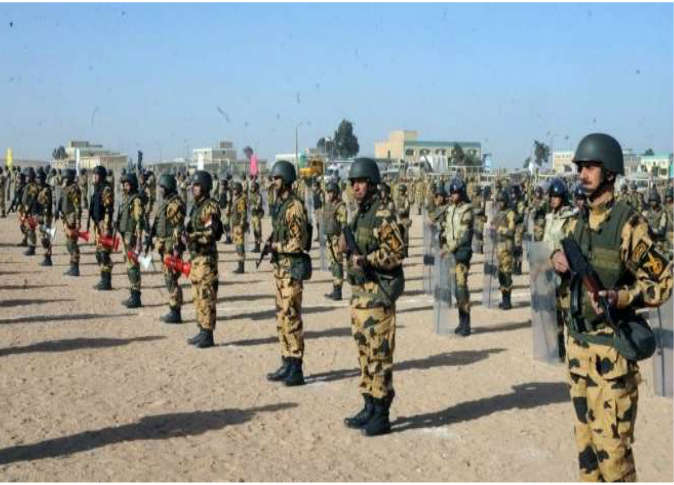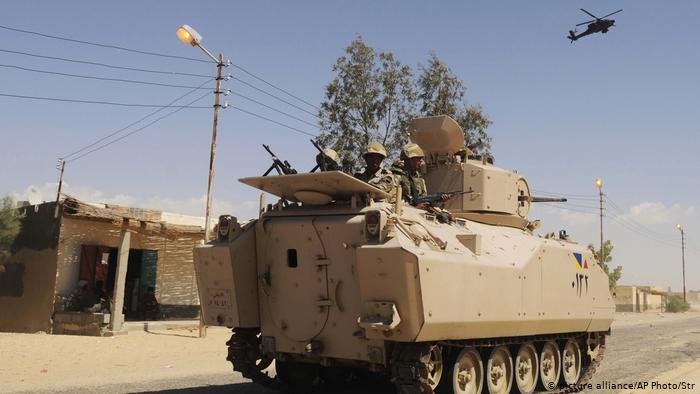Our Armed Forces, with its Ground Forces, Air Force, Navy and Air Defense, played a symphony repeating powerfully and with faith the motto of the Ramadan war: God is great; He put an end to the wrong saying that the Israeli military is invincible in less than six hours. Our martyrs have written with their blood the most glorious page in our modern history, a precious and strong victory, and Egypt’s flags flew over the precious land of Sinai. God is great.
With these words, a military voice bolstered with pride ends its narration of the 1973 war in the October War Panorama. This military museum was inaugurated in 1983 to commemorate the events of the war, also known as the glorious October victory.
The initial six hours of the war celebrated in the panorama, in which Egypt achieved a sweeping military success by means of a surprise attack, is also perhaps the only detail that many Egyptians know of the war, which continued for an additional eventful 20 days –– though there is no mention in the panorama.
While all concede that Egypt had initial military success and emerged from the war with considerable political gains, sources from inside the Egyptian military and historians say there’s much more to the war, which has somehow escaped the Egyptian consciousness.
Veterans and historians say the official narrative of the war leaves out a major military setback that Egypt suffered and that took it to the verge of defeat.
Zachary Lockman, professor of modern Middle East history at New York University, says it’s clear that from a military point of view, it wasn’t the great victory that former President Anwar Sadat claimed it to be.
“It was at best a stalemate … but it was a political victory,” he says.
Initial victory
The events of the first few days of the war are uncontested.
On 6 October 1973, Egyptian and Syrian forces launched simultaneous attacks that succeeded in taking Israel completely by surprise. The attack caused grave damage to its forces and especially its most powerful branch, the air force.
The war came after six years of preparations and sporadic attacks between Egypt and Israel following Egypt’s crushing defeat in 1967, which cost it the Sinai Peninsula. The initial airstrike opened the way for Egyptian troops to climb over the Bar Lev wall, a defense line erected by Israel along the Suez Canal to protect its 1967 gains, into the occupied territories to the east of the canal.
Simultaneously, military engineers created holes in the wall hailed as one of the strongest in the world, using water hoses. They also built bridges for Egyptian tanks and heavy equipment to cross into the east of the canal.
“The perception of the war in Egypt is partially correct about the first two days, but not what happened after that,” says Avi Shlaim, professor of international relations at Oxford University and author of “The Iron Wall: Israel and the Arab World.”
Shlaim says Egypt’s success in surprising Israel and crossing the canal is recognized as an impressive military achievement.
Israel’s failure to predict and prepare for the attack was considered a huge scandal, and is something the Israeli intelligence is still being questioned about to this day.
“We had a lot of superiority factors at the beginning. We succeeded in implementing the elements of surprise and initiative –– it was military planning at its highest levels,” recalls Bilal Barakat, a retired general who headed an artillery unit during the war. “After six years of intense and realistic training, the troops were able to perform the crossing almost on auto mode.”
Starting on 13 October, however, Barakat says the situation was reversed.
Beyond the canal crossing
What happened after that can’t be found in most records of the war in Egypt, whether in school curriculums, media or political speeches.
Historian Assem al-Dessouky argues that Sadat wanted to convince the Egyptian people that the war ended with the crossing of the canal to cover up his strategic mistakes later in the war.
With Sadat hailed as the mastermind of the October victory and toppled President Hosni Mubarak celebrated as the leader of the initial airstrike, both presidents had vested interests in propagating the war as an unquestionable victory, and prohibiting any questioning of the events during their rule.
Saad Eddin al-Shazly, military chief of staff at the time of the war, was dismissed in December 1973 after clashing with Sadat and Defense Minister Ahmed Ismail over several strategic decisions during the course of the war. He was marginalized by the regime.
Only after Mubarak’s ouster in 2011 were Shazly’s memoirs, “October War,” published in Egypt –– revealing a very different view.
“History will attest that … Egyptian officers and soldiers have all exerted their best effort and had the greatest performance, but that Egypt’s ruler at the time, hungry for power and for the spotlight, has aborted their victory,” Shazly writes.
Following Egypt’s initial success, Shazly recounts that Sadat and Ismail insisted against field commanders’ advice on expanding the attack further into Sinai. Following the failure of the attack, Sadat committed what Shazly calls his second strategic mistake, bringing in reinforcements from reserve troops in the west, leaving the forces at the canal with little backup.
While Egyptian forces were suffering heavy losses in the east, Israeli troops were able to cross to the west of the canal through a gap between the Egyptian second and third armies.
Following the elation of the crossing, Barakat remembers the Israeli advancement into the west of the canal as “painful.”
As the roles were reversed and Egyptian losses started to exceed Israel’s, Sadat still refused to end his attempted attack on the east and return the reserves to the west to fend off the attacks, Shazly writes.
By the time a United Nations ceasefire was imposed, the Israeli forces had advanced 35 kilometers into the west of the canal, completely surrounding the third army and cutting it off from its leadership. In the absence of organized troops, an attempted attack on Suez city on 24 October was fended off mainly by civilian fighters.
“They were less than one hour away from Cairo,” says Barakat, adding that, based on the deteriorating state of the forces on the ground, accepting the ceasefire and resorting to a diplomatic resolution was inevitable.
Shazly says with the third army under siege and getting supplies only from Israelis, Egypt was forced to abide by Israel’s conditions in the ceasefire treaty.
Meanwhile, Egyptians celebrated the announced victory. “While these humiliating procedures were occurring on the political and the military levels, the Egyptian people were the last to know, like a deceived husband,” writes Shazly.
“I consider it an incomplete victory. It would have had a true sweet taste if it weren’t for the Israeli penetration,” says Barakat. Lockman says that, hungry for a source of pride following the humiliating 1967 defeat, Egyptians were not too skeptical of the victory announcement.
Not a military victory, but a victory nonetheless
While most historians contest Egypt’s claim that it ended the war with a military victory, all concede that the war still created a lot of damage to Israel and enabled Egypt to make important gains.
“Israelis don’t see the war as a defeat, but they see it as a very costly war,” says Shlaim. He says this war destroyed many misconceptions about the Arab-Israeli conflict that Israel depended on. Even though it had the upper hand on the ground by the end of the war, Israel emerged from it “weakened, politically and militarily.”
These misconceptions include the idea that Egypt was neither willing nor able to engage militarily with Israel, and that the Israeli military was invincible.
The war also forced the US to have a more balanced view of the Arab-Israeli conflict, Shlaim argues, finally considering the Arab dimension as a factor in its policies. “Israel couldn’t have everything its own way [anymore], and the US shifted towards resolving the conflict,” says Shlaim.
Prior to the war, Sadat’s attempts to initiate a diplomatic resolution that would restore Egypt’s occupied land failed, as neither Israel nor the US was interested.
Many historians argue that Sadat did not initiate the war with the aim of accomplishing a complete military victory, but to create an international crisis that would force the major powers to intervene and make limited gains that it could use as leverage in negotiations, and in that sense, he has accomplished exactly his goal from of the war, they say.
A peace treaty was signed between Egypt and Israel in 1979, returning all of Sinai to Egypt except for Taba, which was returned later through international arbitration, while limiting the presence of Egyptian troops in the peninsula. In return, Egypt formally recognized Israel and committed to a collaborative peace with it.
Proud of the accomplishments and heroism of the Egyptian military in the October war, Barakat says he hopes the public gets to know its full history, stripped of any manipulations that serve personal or political interests.
“I would have wanted the people to know everything about the war with complete transparency. No army is victorious all the way,” says Barakat.




